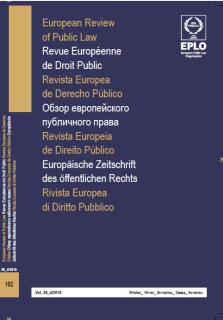
Legal Protection of Same-sex Relationships
The Case of Aruba, Curaçao, the Netherlands and Sint Maarten
LLM, Lecturer in Constitutional Law and Administrative Law
at the School of Law of the University of Curaçao Dr. Moises Da Costa Gomez
The Kingdom of the Netherlands consists of four autonomous countries; Aruba, Curaçao, the Netherlands and Sint Maarten. The Netherlands is known for providing a high level of legal protection for same-sex relationships. This level of protection is absent in Aruba, Curaçao and Sint Maarten. Taking into account the recent developments within the ECHR case law, one has to conclude that Aruba, Curaçao and Sint Maarten are currently breaching the ECHR. This needs to change. Preferably, the countries’ societies and politicians will unite in an effort to autonomously regulate this issue. This process appears to already take place in Aruba. The alternative for the countries is to sit around instead, awaiting (international) court rulings or even Kingdom level interferences to deal with the situation. After all, although the Netherlands - the autonomous country within the Kingdom - already complies with the ECHR standards, it is the Kingdom as a whole which is internationally responsible for the implementation of the ECHR.
Le Royaume des Pays-Bas est composé de quatre Etats autonomes: Aruba, Curaçao, Pays-Bas et Saint-Martin. Les Pays-Bas sont connus pour accorder un degré élevé de protection juridique aux relations sexuelles entre personnes de même sexe. Ce niveau de protection n’existe pas à Aruba, Curaçao et Saint-Martin. Vu les récents développements de la jurisprudence de la CEDH, force est de conclure qu’actuellement, Aruba, Curaçao et Saint-Martin ne sont pas en conformité avec elle. Cela doit changer. Il serait préférable que les sociétés et les politiciens de ces Etats unissent leurs efforts pour régler le problème de manière autonome. Ce processus semble déjà enclenché à Aruba. L’alternative pour ces Etats est de rester à attendre des décisions judiciaires (internationales) ou même des ingérences au niveau du Royaume pour régler la situation. Après tout, bien que les Pays-Bas - en tant qu’Etat autonome au sein du Royaume - se soient déjà mis en conformité avec les normes de la CEDH, c’est le Royaume en tant que tout qui est internationalement responsable de la mise en œuvre de la CEDH.





















